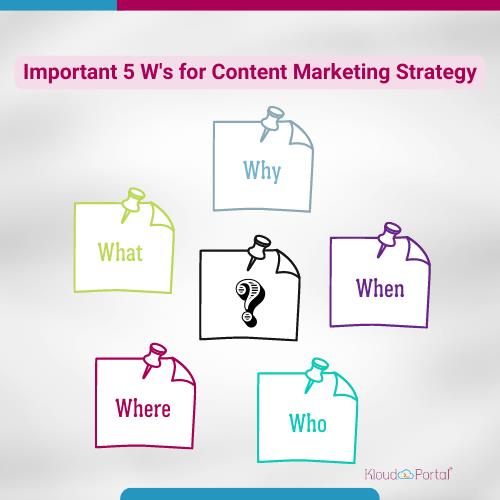Let’s look at a few marketing efforts, such as social media strategy, SEO utilization, and other marketing tactics, including email marketing, to meet your business goals and provide your users with relevant and timely information.
What Are The Challenges For Content Creation?
Many businesses find it challenging to know where to start content marketing and how much content should be created to attract potential customers. Content strategy is a comparatively new niche discipline in the digital era. Content marketing strategies share common grounds with interface design, SEO, UX, web development, etc.
The type of content to be posted, such as videos, blog posts, infographics, etc., is one of the major challenges for content creation. The topics to be covered, the distribution of content among the target audience, and what’s working and what’s not are a few other common marketing challenges.
We’ll cover various content marketing strategies in this blog post. Stay tuned, and keep scrolling for more information, friends!
Keeping It To The Point And Precise
Keeping an eye on the word count and quality apart from the frequency of the posts could make a huge difference. Chapman said the miniskirt approach covers the essentials with enough content to keep the audience curious. Learn more!
In other words, the content should have on-point and timely, precise information. Stop humming! People are busy and have fewer attention spans. Make them skim through your content with relevant subtitles. Instead of trying to put everything forward in one place, incorporate links to information that would elaborate your point. Linking to the information from your archives will hold your audience to the marketing platform and boost your credibility at the same time.
Chapman believes in timing and holding your audience with fascination without ever boring them. Producing content constantly without going silent wouldn’t let the audience divert, and keeping them engaged is easy, says C.C Chapman. Also, cautions that creating content and sharing it once a week isn’t enough.
Knowing What Works
A marketer’s job is not just to produce content but to utilize analytics to identify the ideal frequency and volume. Balancing the appropriate amount of testing against the overall objectives defines the content quality and holds true for the content volume.
Testing is an important component of content marketing strategies. Through marketing tools, it is easier to finetune the output of your content to engage your audience based on the metrics displayed after posting. Like all marketing activities, investing in content can show diminishing returns.
Doubling the investment would only fetch 40% greater results. But be practical. Jon Miller says that many companies are at the lower end of the content curve, so compact investments in addition to content would fetch large returns. He also advises you to continue to invest more while moving up the curve till the marginal return of your investment reaches the same level.
Matching The Literacy Level Of Audience With Your Writing
A series of tests were done to check the varying literacy levels of people by Angela Colter. The research showed that people with low literacy levels found it difficult to finish the basic tasks of the website containing content available for folks with high literacy levels.
While using websites that don’t require high literacy levels, lower literacy users finish their tasks quicker and with the least irritation. That sounds obvious, isn’t it? An incidental discovery from this research is users with high literacy levels scored more on the website, which was written for lower literacy users.
Some important aspects are keeping your language simple and putting the information on the point. The low and high literacy users will appreciate you for it.
Important W’s And H’s Of Content Marketing Strategy
Anyone majoring in journalism would be aware of the five w’s and h, i.e., who, where, why, what, when, and how. Purists defend that a story is incomplete if all six questions are unanswered. It is valid up to a certain level in the journalism sense, although omitting any one of these questions would carve a hole in the story.
So how does this ally to the content strategy? Rick Yagodich has shuffled the order of the five w’s and h to serve a checklist that online content strategists can utilize to make sure their content strategy is watertight.
- What?:”What” refers to the message to be conveyed.
- Why?:“Why” refers to business objectives and cases.
- Who?:“Who” refers to the audience.
- When?:“When” refers to the time to create content and publish.
- Where?:“Where” refers to the place of message reading.
- How?:“How” refers to the structuring of the program.
It is one of the most efficient content marketing strategies that serve as a checklist to ensure your content strategy covers everything.

SEO Efforts
With the latest algorithm updates, such as Penguin and Panda, folks from different genres claimed that search engine is not dead. The common problem is that it is getting challenging to pave your path to the top page.
Jonathan Colman claims that search engines are the core part of content marketing efforts. The strategists are also positioned to strategize and create content that establishes brands instead of keywords and governs content marketing. It also follows the webmaster guidelines search engines provide for putting forward valuable information in depth.
It is super important to stick to Google’s quality guidelines for successful search results and avoid known SEO tricks. Google also provides a checklist containing SEO tactics that must be avoided.
In order to generate quality content, it is necessary to associate with the SEO best practices. Every SEO must adopt SEO content marketing to remain on Google’s better list.
Importance Of Social Media Platforms
The humbling and modest aspect of any content strategy is the awareness that your content might not be important content on the website. The most important content must be the user’s content.
Luke Wroblewski states that the most visited websites exist only due to their read/write nature. Social channels such as Facebook, Google, YouTube, and Twitter are great resource and allows the users to create and deliver content in addition to interacting with user’s content. Wroblewski explains the importance of embracing the read/write concept for a meaningful content strategy.
Social media strategy is also a successful content marketing strategy that allow users to create, engage, and express their content on a particular topic. We must establish platforms that permit users to create their content.
Conclusion
- Quality over quantity and covering finer details with relevant content are important.
- Social media is an important content strategy.
- Including the five W’ and an H, avoiding SEO tricks, and matching the literacy levels must be considered.


